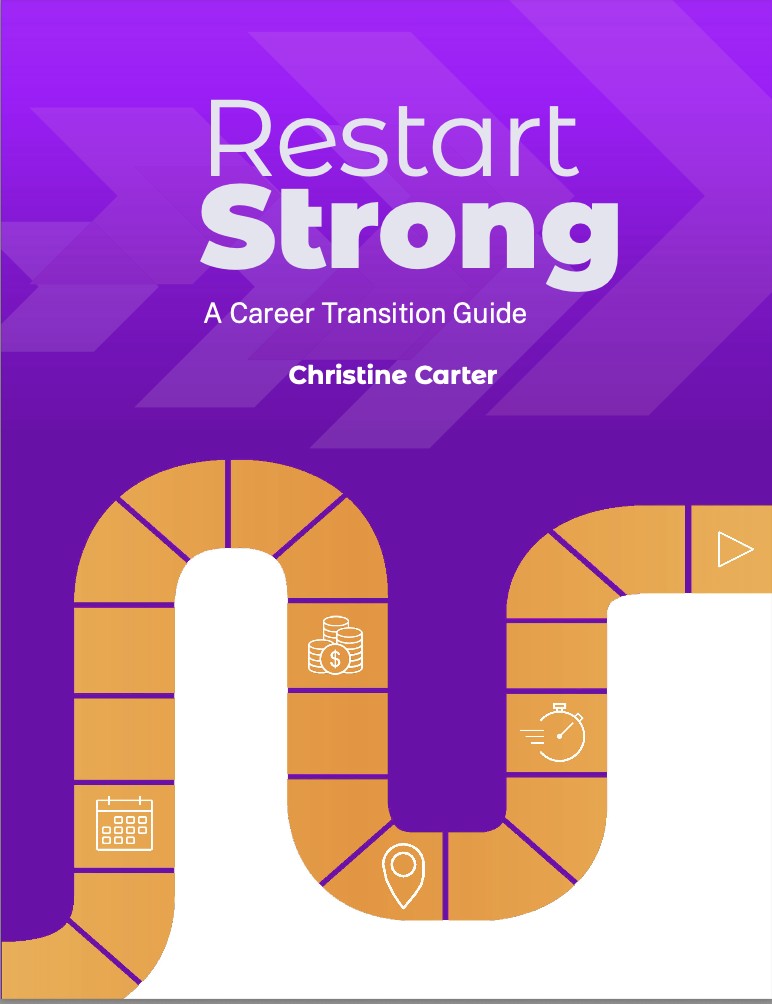By delving into this book, readers can transform their careers and lives by gaining the clarity needed to navigate career transitions effectively. ‘Restart Strong’ equips them with actionable insights and exercises that foster an intentional, authentic life, propelling them toward becoming their best selves. Through a series of reflective exercises, strategies, and personal anecdotes, readers will find themselves empowered to craft a life of purpose, clarity, and fulfillment, ultimately leading to both personal and professional success.
Restart Strong
Key Points
1: Strong Self
The importance of understanding personal values for effective life planning.
In Chapter One: Strong Self, the book emphasizes the need to map your values using exercises like 'My Value Wheel.' Understanding personal values is crucial as it forms the foundation upon which you build your life goals. Knowing what you stand for helps in making decisions that align with your true self and prevents you from chasing hollow goals that don't bring fulfillment. It encourages readers to delve deep into what truly matters to them, thereby ensuring the decisions they make in personal and professional spheres are congruent with their core beliefs. Through this process, individuals can live authentically and with greater satisfaction.
2: Strong Goals
Setting S.M.A.R.T. goals as a transformative strategy.
Chapter Two: Strong Goals discusses the significance of the S.M.A.R.T. framework—Specific, Measurable, Achievable, Realistic, and Time-Bound—for setting effective career goals. This approach allows individuals to transform broad ambitions into precise actions, bringing clarity and focus to their career paths. The chapter highlights that by using S.M.A.R.T. goals, professionals can better navigate career transitions, ensuring each step is purposeful and contributes to their long-term vision. This method not only aids in maintaining momentum during a job search but also supports continuous personal growth, as goals are refined and aligned with evolving career aspirations.
3: Strong Career
The role of personal branding in career advancement.
In Chapter Three: Strong Career, the book explores the concept of personal branding, urging readers to view themselves as a brand. It stresses the importance of packaging your professional journey into a compelling narrative that resonates with potential employers. Creating a strong personal brand involves crafting a polished resume, maintaining a professional online presence, and developing a concise elevator pitch. These elements work synergistically to present a cohesive image, making it easier for employers to understand your professional value and connect you with opportunities. This strategy not only enhances job search effectiveness but also positions you as a thought leader in your field, ultimately propelling career advancement.
Introduction: Introduction
Embracing resilience in the face of career transitions.
The book, in its introductory sections, underscores the emotional and strategic aspects of navigating career transitions. By sharing personal anecdotes and practical exercises, the author helps readers build resilience. There's a focus on viewing setbacks as redirections rather than failures, encouraging a mindset that embraces change and leverages it for personal growth. This perspective empowers individuals to face uncertainties with confidence and clarity, turning career disruptions into opportunities for reinvention. Engaging with this content helps readers develop a proactive approach to career management, fostering a resilient attitude that sees challenges as stepping stones rather than obstacles.

This book is for career-changers, professionals in transition, and individuals seeking personal and professional development.